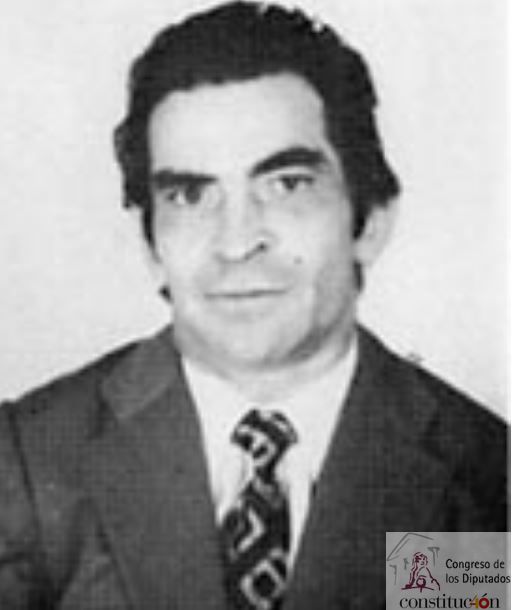 Persona - Barbón Martínez, Emilio (1930-2003)
Persona - Barbón Martínez, Emilio (1930-2003)
Identificación
Tipo:
Persona
Forma autorizada:
Barbón Martínez, Emilio (1930-2003)
Fechas de existencia:
Pola de Laviana (Laviana, Asturias, España) 1930 - Pola de Laviana (Laviana, Asturias, España) 2003
Historia:
Abogado español. Hijo de un minero socialista que sufrió la represión después de la guerra civil incorporado a un Batallón de Trabajadores hasta 1941, momento en que la familia se trasladó a Barredos (Laviana) en cuya escuela aprendió Emilio las primeras letras. Poco tiempo después de llegar a dicha localidad, su madre fue llevada al campo de concentración de Figueras de Castropol (Asturias), en el que permaneció durante siete meses por esconder a un «huido». De niño, Emilio sufrió una parálisis, dejándolo dependiente de las muletas durante el resto de su vida.
Estudió el bachillerato en una academia de Sotrondio entre 1945 y 1952 y la carrera de Derecho en la Universidad de Oviedo desde 1952 a 1957, con sendas becas de la empresa Duro Felguera y la Caja de Jubilaciones de la Minería. Su contacto con la organización socialista clandestina se produjo a comienzos de los años cincuenta, incorporándose definitivamente a la misma en 1957.
Bajo el seudónimo de «Nicolás» representó a la zona de Barredos-Laviana en el Comité de la Federación Socialista Asturiana del PSOE y después de la redada de 1960 ejerció como coordinador de las organizaciones socialistas de Asturias hasta que en abril de 1962 se constituyó el Comité Regional de la FSA, siendo elegido presidente del mismo y en el que Pedro León fue secretario, Luis Fernández Roces, tesorero y Herminio Álvarez, Avelino Pérez, Manuel Mondelo y Manuel Martín Rueda miembros del mismo. Su despacho laboralista en Laviana sirvió de tapadera para las actividades de la UGT y del PSOE. Su autoridad y prestigio se acrecentaron por su capacidad de liderazgo durante los conflictos mineros de 1962 y 1963. Asimismo, creció su relevancia e implicación social como abogado de causas difíciles (detenciones y despidos laborales por motivos políticos). Fue delegado provincial en 1963 y 1964 de la Asociación Nacional de Inválidos Civiles. En agosto de 1967 fue elegido presidente de la FSA y en septiembre secretario del Comité Provincial de la UGT. A finales de ese año fue detenido y procesado con posterior sobreseimiento de la causa.
Emilio fue el encargado del aparato de propaganda de la FSA desde finales de 1969 a partir de la llegada a Asturias de Agustín González, asegurando la salida regular del periódico Adelante. Realizó frecuentes viajes a Francia para entrevistarse con la Comisión Ejecutiva del PSOE y la UGT en el exilio y para asistir a los Congresos de ambas organizaciones estando presente en octubre de 1974 en el XIII Congreso del PSOE en el exilio celebrado en Suresnes-París. Volvió a ser detenido en Madrid en 1975 y conducido a la Dirección General de Seguridad, durante la manifestación convocada en el cementerio civil para rendir homenaje a Pablo Iglesias. Fue secretario general de la UGT de Asturias desde mayo de 1976 hasta abril de 1977 en que se incorporó al Comité de la FSA como secretario de Relaciones con otras Fuerzas. Fue elegido diputado por Asturias en las primeras elecciones generales de la democracia celebradas en junio de 1977.
Al dejar las Cortes fue diputado en la Junta General del Principado de Asturias y Consejero de Trabajo y Acción Social, en el ente preautonómico de la Comunidad asturiana y en el primer Gobierno autónomo que presidió Rafael Fernández (1982-1983). Al abandonar el cargo se dedicó a la abogacía en su despacho en Pola de Laviana hasta que, en mayo de 1989, fue nombrado magistrado de la Sala Civil-Penal del Tribunal Superior de Justicia como jurista de reconocido prestigio, nombrado por el Consejo del Poder Judicial, desempeñando dicho cargo hasta el 21 de mayo de 1999 que se jubiló.
Entre los numerosos galardones y reconocimientos a su trayectoria, cabe destacar la Orden del Mérito Constitucional (1988), la Medalla de la Junta General del Principado (1992), la Gran Cruz de la Orden del Mérito Civil (1998) y, a título póstumo, la Medalla de Asturias en su categoría de Oro (2003).
Falleció en Pola de Laviana el 14 de junio de 2003.
Fecha del evento: 1977-07-13 - 1979-01-02
Ocupaciones
Profesión (Es realizada por):
actividad:
(Función) Desempeña/lleva a cabo/realiza:
(Función) Desempeña/lleva a cabo/realiza:
Lugares
Lugar de Nacimiento:
Lugar de Defunción:
Conceptos/Objetos/Acontecimientos
Fuentes
Relaciones
Relaciones asociativas :
Enlaces Externos
Recurso web:
Recurso web:
Catálogo de Autoridades:
Fichero de Autoridades:
Documentos
Productor de:
- No hay Unidades de Descripción asociadas.
Documentos relacionados:
- No hay Unidades de Descripción asociadas.






